Pencils of Promise (PoP) is dedicated to improving student literacy around the globe, not only through building schools, but through the design and implementation of safe, healthy and high-quality Teacher Support (TS) and Water, Sanitation and Hygiene (WASH) programs in Ghana, Guatemala and Laos. Primary-level education creates long-term, dynamic change for students and translates it into improvement for their communities and society in general.
Your contribution goes well beyond a school build. When you donate to PoP, you help create sustainable, enduring changes in students’ lives, in a community’s environment and in a society’s growth. Your long-term investment in public education can be analyzed in a number of ways – one of which is the return on investment (ROI), which is the ratio of profit to cost (Beattle, 2000), and helps quantify how much the benefits outweigh the costs of an investment.
What is ROI and why is it important?
PoP conducted an extensive literature review of ROI methodologies to estimate the long-term effects of TS and WASH programs within primary school systems in rural areas of Ghana, Guatemala and Laos. This is a shortened version of the full research we use internally.
PoP is dedicated to ensuring that every dollar given online goes directly to programs, but the return on those funds is far greater than the provision of a water filter, facilitation of workshops or building of a classroom. ROI helps PoP understand how our work reaps benefits down the line relative to other options. To justify an investment, the rate of return should be positive (more benefits than costs), and higher than alternatives (Psacharopoulos & Patrinos, 2018). This same logic informs PoP’s decisions and actions towards maximizing the benefits to students and their society.
PoP’s focus is on the students in the classroom. By supporting students’ efforts for literacy gains and WASH outcomes, PoP seeks to create an environment where students can grow to reach their full potential. Be it sustainable school construction, or partnering with public education systems to support teacher capacity or growing local water and sanitation efforts, PoP seeks to create sustainable solutions so that each student can develop in their own right and generate opportunities for economic growth.
ROI on Time in the Classroom
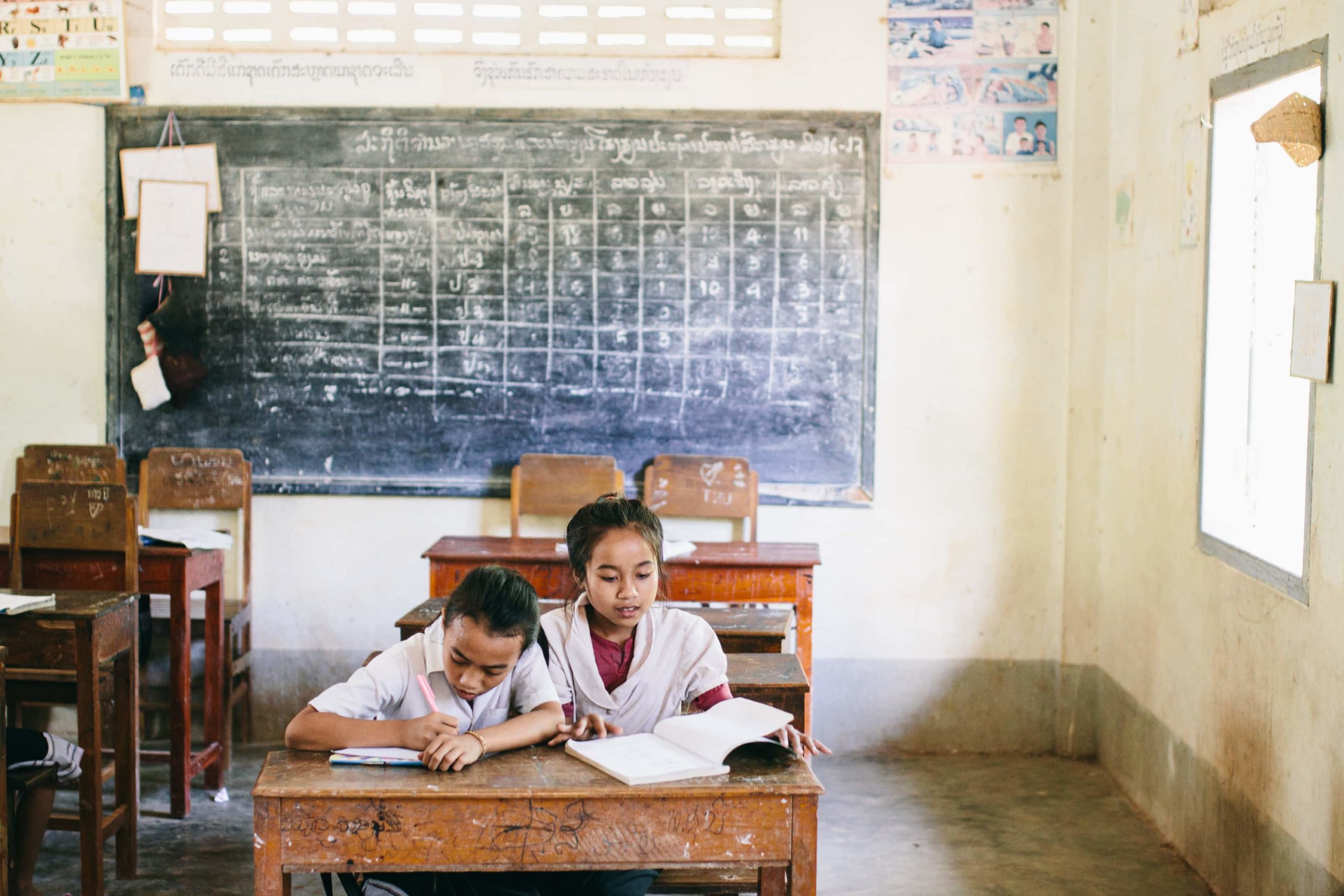
Photo credit: Timmy Shivers
While economic development is a complex process, educational investments are well-studied. ROI is typically examined in terms of private and social costs as well as private and social returns. Private returns refer to the net positives an individual will experience, and social returns refer to those expected by the society overall.
In terms of PoP’s work, costs include school construction and maintenance, teacher training services, school supplies and hygiene workshops. Some example benefits are outlined in Table 1.

The World Bank utilizes a database of 1,120 estimates in 139 countries to find that the private average global rate of return to one additional year of schooling is 8.8% annually, and very stable over decades (Psacharopoulos & Patrinos, 2018). Evidence suggests that investment in primary education reaches higher returns and, therefore, the global average of 8.8% likely underestimates PoP’s impact. Additionally, returns are higher in low- and middle-income countries (LMICs) than in high-income countries (HICs) (e.g., Ghana, Guatemala and Laos are middle-income countries) and, girls experience higher average rates of return to schooling than boys, placing even more importance on investments in primary education (Psacharopoulos & Patrinos, 2018). See Table 2 below for an example.
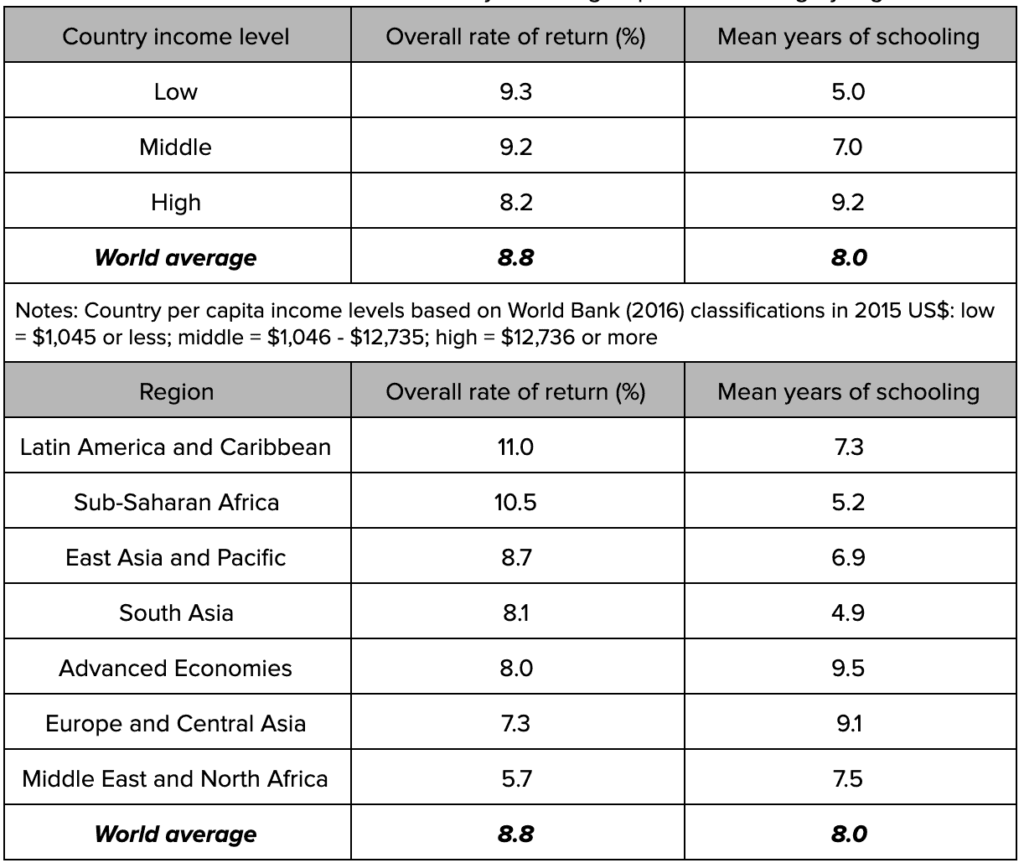
To contextualize this ROI, consider that through the end of 2019, PoP’s TS program was in a total of 187 schools with an average of about 130 students each for a total of 24,321 students impacted (across all grades). In 2019, PoP invested more than $3 million in TS programming across all three countries. PoP’s commitment to providing a quality education to primary students offers additional resources to local ministries and provides greater leverage to the overall ROI for an individual and society.
-
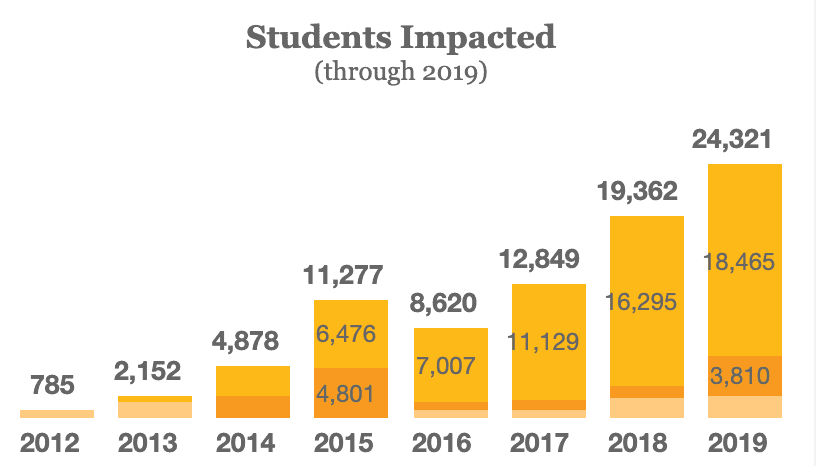
Figure 1: Cumulative Students Impacted by PoP’s TS Programming -
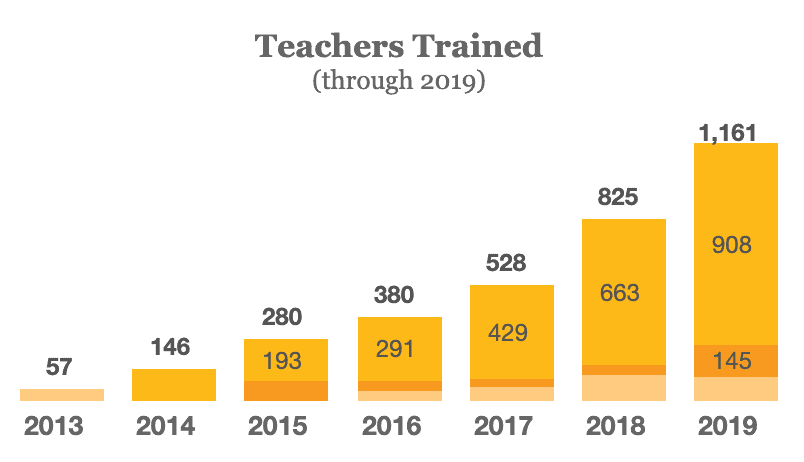
Figure 2: Cumulative Teachers Impacted by PoP’s TS Programming
WASH ROI
Student health, teacher health and an overall safe and healthy school environment are crucial for good outcomes. Access to bathrooms, hand-washing stations, toothbrushing, menstrual hygiene education and other programming helps students to stay in school, out of sick beds and in a positive learning environment.
Inputs for WASH are more readily quantified and straightforward than in the literacy-specific realm. They are mostly up-front capital costs, as operation and maintenance costs are relatively low, estimated at about 10% of overall project expenses. The remaining 90% expenses are for materials, construction, etc. (Hutton, 2012), where PoP also supports local economies since we invest in local contractors and providers.
The outputs of investing in WASH are immense, even beyond the infrastructure itself. Improved WASH not only decreases risk of illness, but also supports improved nutritional status, encourages economic activity, releases time for those who would be caregivers, supports community organization through community-led hygiene education committees and improves primary healthcare (e.g., by reducing healthcare system burdens) (Okun, 2011).
A report from the World Health Organization (WHO) quantifies the cost-benefit ratio of providing universal WASH coverage and estimates costs and benefits of drinking-water supply and sanitation interventions at the global, regional and country level (Okun, 2011). It focuses on services that are financially sustainable and effective, and the analysis includes data from 136 countries, and considers positive, negative, direct and indirect effects of different interventions, as well as various cost estimates, to establish a benefit-cost ratio. Benefits included and excluded for calculation are detailed in Table 2 and it should be noted that many were purposefully excluded to provide a more conservative and reliable ROI.
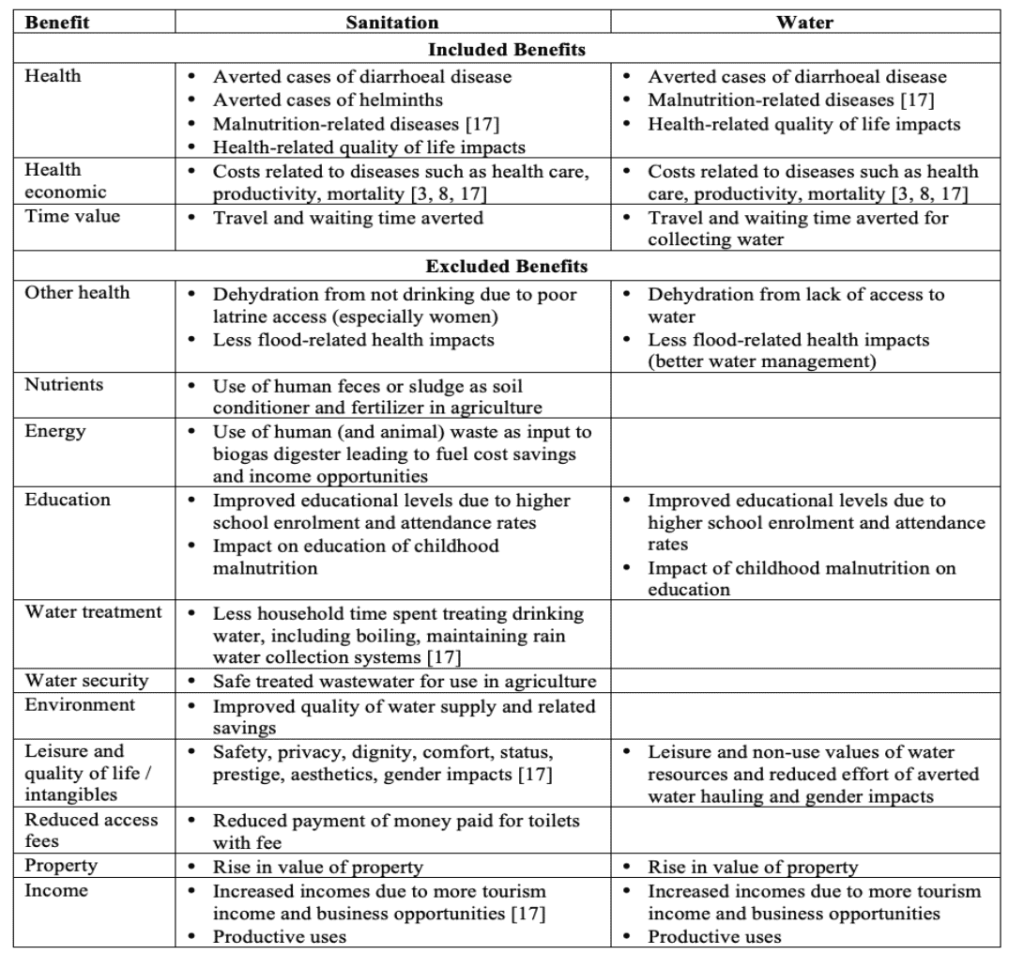
The analysis separately estimates WASH interventions’ health and time benefits, paying careful attention to rural/urban population splits and weighting by population size. Considering the depth and breadth of the WHO report on WASH benefits to local economies, this method of calculating ROI aligns with the geographical coverage of PoP-supported schools and the way in which PoP WASH programming and infrastructure is facilitated.
The global economic return for achieving universal access to basic sanitation differs from the return for universal access to clean drinking water, and both of these returns differ across regions. Generally the returns for sanitation interventions are higher than for water interventions. On average, the combination of water and sanitation interventions have a benefit-cost ratio of 4.3 at the global level, meaning that every dollar invested is estimated to generate $4.30 in observed benefit (e.g., reduction in healthcare cost).
The main contribution of sanitation, which accounts for a majority of the economic benefits, are time savings (more than 70% of all benefits in all regions). Time that would otherwise be spent going to collect and prepare water from a source, for example, can be directed elsewhere. Healthcare savings range from 5% to 13%. The main contribution of drinking-water systems is also time savings, at nearly 70% of total benefits in all regions. Healthcare savings account for more than 10% of benefits across all regions, with some regions up to 35% (Hutton, 2012).
On average, a $1,000 investment in PoP’s WASH programs in 2020 helps bring clean water, workshops and infrastructure to about 50 students for a full year. Taking the global benefit-return ratio for investments in WASH of 4.3, this $1,000 generates $4,300 in returns, especially in time savings and averted healthcare costs. In 2019, PoP brought WASH programming to 140 schools and 26,204 students (see below), which equates to about $574,805 of investment and implies an average return on investment of $2,471,662. This represents the dollar value of benefits outlined in Table 3, above.
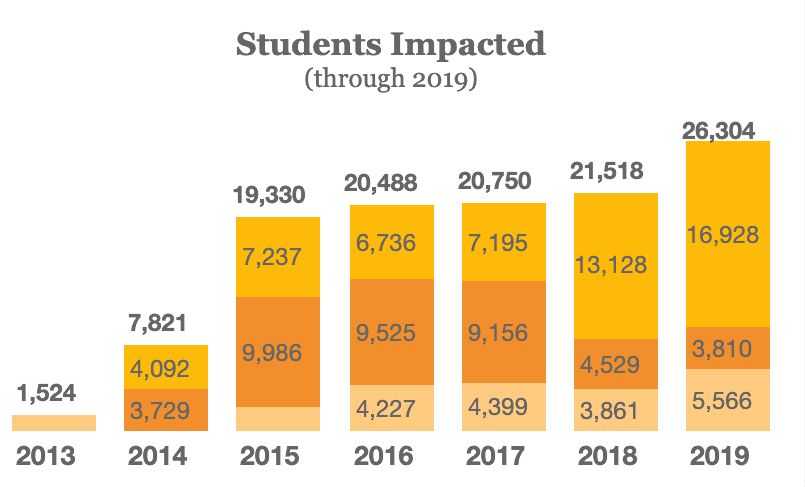
Figure 3: Cumulative Students Impacted by PoP’s WASH Programming
Investments for a Lifetime
The financial growth of PoP over its 10+ year lifespan has increased opportunities for success around the world by improving teacher skills in the classroom and building school environments that keep children healthy. PoP’s investment in TS and WASH has steadily increased and an expedited allocation of funds in recent years centers on increasing scale and scope. Ultimately PoP’s work will provide more teachers with concrete skills, students with increased literacy and WASH outcomes, and is associated with increased future earning potential (due to more years in primary schools), and substantial healthcare savings within local economies. Returns associated with PoP’s work are even more significant when focusing on overcoming barriers and gender-based inequities (Stanfill & Tan, 2018). PoP programming reaches gender parity in classroom enrollment and performance, in addition to offering comprehensive menstrual hygiene management lessons (Debre, 2018; De Leon, 2019).
The impact of investing in PoP programming is highlighted when focusing on the relationship between farming and schooling. Communities in Ghana, Guatemala and Laos where PoP programming is offered are agriculture-centered with the majority of families contributing to the food production ecosystem. Agriculture contributes to a third of the global GDP (World Bank, 2019) and in LMICs (such as Ghana, Guatemala, and Laos), growth in the industry is the major driver of poverty reduction (Townsend, et al. 2015). There is a strong correlation between education attainment and economic prosperity (Ozturk, 2008), with evidence suggesting positive effects of education on productivity among farmers. It is also important to recognize social returns as a result of increased access to education, such as a reduced burden on caregivers, thriving labor markets and decreases in community violence.
The ROI of PoP’s efforts in Ghana, Guatemala and Laos extend beyond the scope of time in the classroom and access to healthy learning environments. As a direct service providing full-scale implementation non-profit, PoP is able to minimize use of intermediary contractors and other agencies to facilitate programs. PoP employees, with salaries generated from donations, create, organize and execute Teacher Support and WASH workshops. They facilitate one-on-one personalized coaching sessions. Donations go to local companies for purchasing water filters and other materials that make PoP programs both state-of-the-art and sustainable. When you donate, you invest in local economies throughout Ghana, Guatemala and Laos with the ultimate goal of continued reinvestment in these communities. Taking guidance from local leadership and building a supply chain management system that focuses on local providers is a combination that truly sets PoP apart from others and highlights the even greater return on donor dollars.
Access to a quality education is a basic human right and yields benefits far beyond that of the learner and those in their community. Investments in creating safe and healthy learning environments where teachers feel supported and become more effective in the classroom is how primary students will stay in school longer, leading to increased likelihood of local economy growth and overall reduction in poverty.
